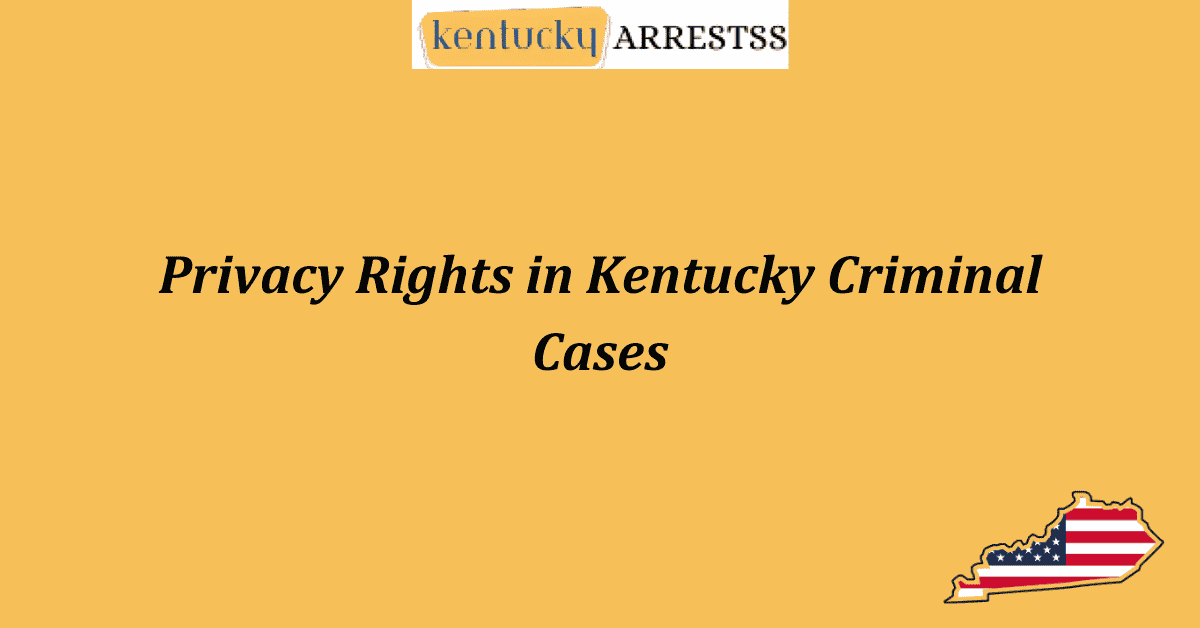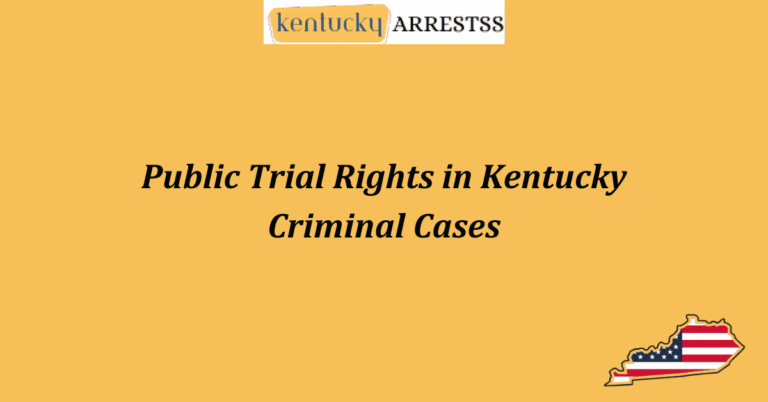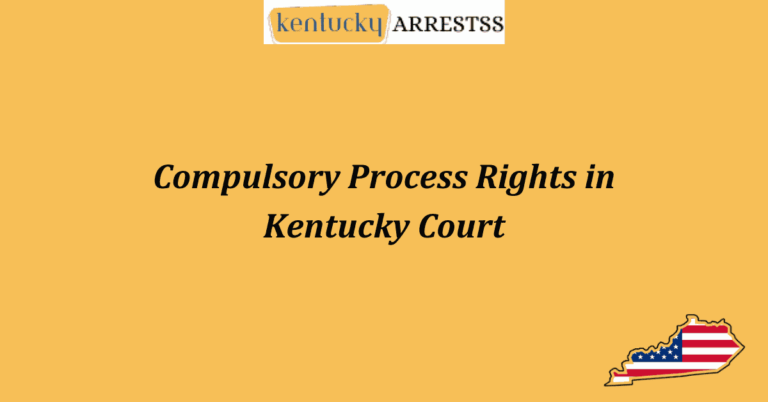Privacy Rights in Kentucky Criminal Cases
Privacy rights in Kentucky criminal cases are an essential aspect of the legal system that ensures individuals are protected from unwarranted intrusion. These rights encompass various aspects, including the right to confidentiality during legal proceedings, protection against unlawful searches and seizures, and the right to due process. Understanding these rights is crucial for both defendants and the general public to navigate the complexities of the criminal justice system in Kentucky.
Individuals in Kentucky facing criminal charges must be aware of their privacy rights to safeguard their personal information and ensure a fair trial. These rights play a significant role in preserving the integrity of legal proceedings and upholding the principles of justice. By being informed about privacy rights in Kentucky criminal cases, individuals can actively participate in their defense and protect themselves from potential violations of their privacy.
Overview of Privacy Rights in Kentucky Criminal Cases
Privacy rights in Kentucky criminal cases play a crucial role in safeguarding individual liberties and ensuring fairness and justice in legal proceedings. Understanding the importance of privacy rights is essential for both attorneys and clients to navigate the complexities of the legal system.
Importance of Privacy Rights in Legal Proceedings
Privacy rights are fundamental in protecting attorney-client communication, which is essential for building a strong defense strategy. The Fourth Amendment guarantees the right to privacy and protects individuals from unreasonable searches and seizures, emphasizing the importance of upholding these rights in legal proceedings.
Protection of Attorney-Client Communication
Privacy rights ensure that attorney-client communication remains confidential, allowing attorneys to provide effective legal representation without fear of intrusion. This protection is crucial for maintaining trust and fostering open communication between lawyers and their clients.
Safeguarding Against Unreasonable Searches and Seizures
The Fourth Amendment protects individuals from unreasonable searches and seizures by law enforcement authorities. Privacy rights play a vital role in preventing arbitrary intrusion into personal spaces and belongings, ensuring that evidence obtained through unlawful means is not admissible in court.
Role of Privacy Rights in Upholding Fairness and Justice
Privacy rights are essential for upholding fairness and justice in legal proceedings, as they preserve individual liberties and promote transparency in the legal process. By respecting privacy rights, the legal system can maintain integrity and uphold the rights of all individuals involved.
Preservation of Individual Liberties
Privacy rights are integral to preserving individual liberties and protecting individuals from unwarranted government intrusion. By upholding privacy rights, the legal system can ensure that individuals are treated fairly and that their rights are respected throughout the criminal justice process.
Ensuring Transparency in the Legal Process
Privacy rights promote transparency in the legal process by establishing clear boundaries for law enforcement activities. By adhering to privacy rights laws, the legal system can maintain accountability and ensure that legal proceedings are conducted in a fair and impartial manner.
Navigating Privacy Rights Laws in Kentucky
Understanding the regulations governing privacy rights in Kentucky is essential for both attorneys and clients involved in criminal cases. By familiarizing themselves with privacy rights laws, individuals can protect their rights and ensure that they receive fair treatment under the law.
Understanding Regulations Governing Privacy Rights
Privacy rights laws in Kentucky outline the parameters for protecting individual privacy and ensuring that legal proceedings are conducted in a manner that upholds fairness and justice. By understanding these regulations, individuals can navigate the complexities of the legal system and assert their rights effectively.
Frequently Asked Questions
Our FAQ section aims to address common queries regarding Privacy Rights in Kentucky Criminal Cases.
What are privacy rights in Kentucky criminal cases?
Privacy rights in Kentucky criminal cases refer to an individual’s rights to privacy protected under the state and federal constitutions. These rights include protection against unreasonable searches and seizures, the right to remain silent, and the right to legal counsel.
Can law enforcement search my property without a warrant in Kentucky?
In Kentucky, law enforcement generally needs a warrant to search your property. However, there are exceptions to this requirement, such as consent searches, exigent circumstances, and searches incident to a lawful arrest.
Do I have the right to refuse a search by law enforcement in Kentucky?
Yes, you have the right to refuse a search by law enforcement in Kentucky. You can assert your Fourth Amendment rights and politely decline a search if law enforcement does not have a warrant or probable cause.
What if my privacy rights are violated in a Kentucky crime case?
If you believe your privacy rights were violated during a criminal case in Kentucky, you should consult with an experienced criminal defense attorney. Your attorney can assess the situation, determine if your rights were violated, and take appropriate legal action to protect your rights.
Are there any recent changes in privacy rights laws in Kentucky?
It is essential to stay updated on recent changes in privacy rights laws in Kentucky. Recent developments in technology and legislation may impact your privacy rights in criminal cases. Consulting with a knowledgeable attorney can help you understand any recent changes and how they may affect your case.
How can I best protect my privacy rights during a criminal case in Kentucky?
To best protect your privacy rights during a criminal case in Kentucky, it is crucial to know your rights, remain informed about relevant laws, and seek legal advice when needed. Working with a skilled criminal defense attorney can help you navigate complex legal issues and safeguard your privacy rights throughout the legal process.






